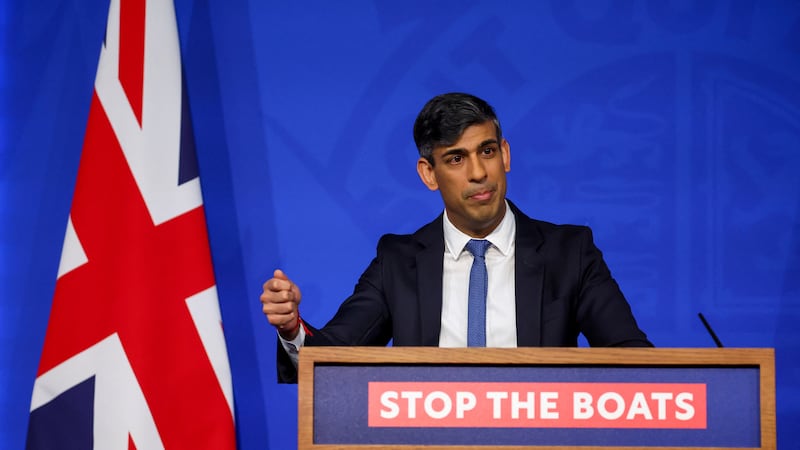Britain leaving the European Union with no deal is a "distinct possibility" and would "undoubtedly" leave the country worse off, the European Commission's chief Brexit negotiator has said.
Michel Barnier reiterated his warnings of dire consequences for the UK if it leaves with no agreement, which he first made in a little-noticed speech on the day of the Westminster terror attack.
He went further in highlighting the potential of Britain and the EU concluding the two-year withdrawal process under Article 50 of the EU treaties, which Theresa May will trigger on Wednesday, with no agreement.
Writing in the Financial Times, the Frenchman said: "It goes without saying that a no-deal scenario, while a distinct possibility, would have severe consequences for our people and our economies.
"It would undoubtedly leave the UK worse off.
"Severe disruption to air transport and long queues at the Channel port of Dover are just some of the many examples of the negative consequences of failing to reach a deal.
"Others include the disruption of supply chains, including the suspension of the delivery of nuclear material to the UK.
"While the 27 member states will find it easier to adjust, as they will still benefit from the single market, the customs union and more than 60 trade deals with their international partners, we believe it is in the best interests of both sides to reach a deal on the UK's orderly withdrawal from the EU.
"It is the only way to properly protect the rights of EU citizens."
It comes amid a domestic row over British government plans to give ministers controversial 'Henry VIII' powers to change EU laws as they are repatriated to Britain without full parliamentary scrutiny.
Labour leader Jeremy Corbyn has made clear Labour will oppose the "essentially dictatorial powers".
Commons Leader David Lidington defended the plans, to be outlined on Thursday in a white paper on the great repeal bill, which will convert EU regulations into domestic law, crucially allowing them to be altered or removed after Brexit.
Time-limited Henry VIII clauses will allow ministers to use delegated powers to make changes to EU laws as they become UK laws in the bill using secondary legislation, meaning the changes will not be subject to full debates and votes by MPs.
The government argues it needs the power as a significant proportion of existing EU law will not work properly without changes being made, so ministers must be given the ability to make "technical" adjustments quickly.
But Mr Corbyn told ITV's Peston On Sunday programme: "I don't think the record of Henry VIII on promoting democracy, inclusion and participation was a very good one.
"We are not going to sit there and hand over powers to this government to override parliament, override democracy and just set down a series of diktats of what's going to happen in the future.
"We would be failing in our duty as democratically elected parliamentarians if we did that."
On BBC Sunday Politics, Mr Lidington explained: "Because a lot of those EU regulations will, for example, refer to the Commission or another European body, a regulator, you need to substitute a UK authority in place.
"So we need to have a power under secondary legislation to tweak the acquis, the European regulations so that it's actually coherent.
"It will be a limited and defined power, not to act like a dictator, but by secondary legislation."
Major policy changes, such as new immigration or customs controls, will be brought forward under normal parliamentary bills and subject to full scrutiny.
The Henry VIII powers will end at a time spelled out in the legislation by a "sunset clause" and will also be handed to Scotland, Wales and Northern Ireland so they can correct laws that that will come under the remit of the devolved administrations.







